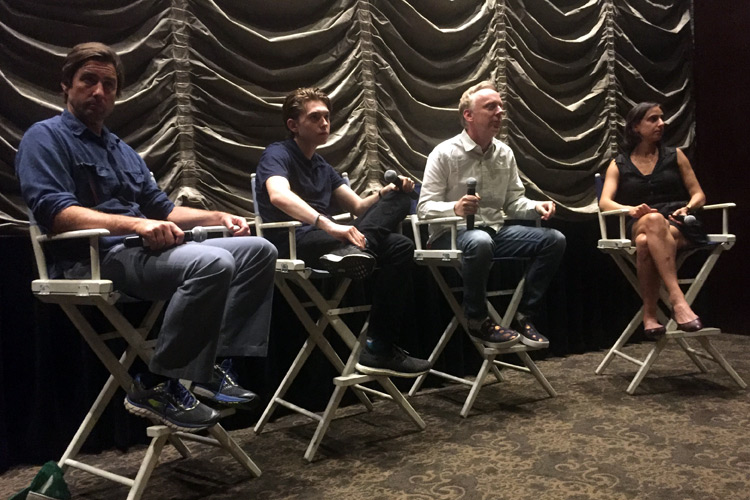The following questions and answers are excerpted from a conversation that followed the NBR screening of Brad’s Status.
You’re a prolific writer, but this is only your second time directing a feature. What motivates you to direct one of your own pieces?
Mike White: I knew the tone was going to be particular, so it was just going to be hard to help another director interpret what I intended for film to be. I figured it would just be easier to make it myself!
Luke Wilson: Isn’t there an element of cutting out the middle man? And just in terms of time, you’re not having to sit there and explain everything.
White: For me, it’s personally about what’s more stressful: Whether it’s directing and having to manage people, or sitting in the back giving directions. It’s being the annoying guy questioning every move. With this one, I knew and trusted the people I was working with, so it was good fun.
“It’s one of the best scripts I’ve ever read.”
What was your first reaction to the script, and was there something that you latched onto that informed your portrayal?
Austin Abrams: It’s one of the best scripts I’ve ever read. The scene at the end in the hotel room gave me some great information on his intelligence and thoughtfulness in how he cared about other people, especially for an eighteen year old.
Wilson: I think one interesting thing I noticed about the script is that you don’t know where it’s going to go and you’re just watching it. I found myself following the turns of the plot and character motivations. It was unusual, especially in the interactions with Ben and Austin and Ben with the female student. I think that’s what draws us in.
How did you direct the actors to play the fantasy versus the reality scenes?
White: The fantasy scenes were a lot more fun because it doesn’t have to be authentic in a sense, but we didn’t want the fantasy scenes to be ‘pushed’ so much that it was a tonal schizophrenic moment. I wanted it to be as authentic as possible, so we weren’t pushing the comedy and instead tried to make it more naturalistic. The moments where they’re on the plane and the kid is snorting cocaine let us just rip and many of the fantasy moments are like that within the tonal limits.
As an actor, did you explore the mother’s influence on the character of Troy?
Abrams: I feel like he’s more raised by his mother. Brad is wrapped up in his own mind and work most of the time. Troy is surprised that his dad is helping him on his interviews. I think he would have liked for his mother to come with him instead of his father because he hasn’t been as involved with the raising of Troy in the past.
White: I think it’s built into the script that there’s this other side to him where he is his mother’s son.
What’s was the story behind bringing Luke Wilson to this project?
White: At first I was thinking that Luke would be able to knock out the funny part of Billy, but I also know that Luke has a lot of soulfulness and a likable presence on screen. I knew I wanted to tap into that for another character who could come across as a private plane flying douchebag.
Wilson: I was thinking gosh, the hedge fund guy is interesting, but the other guy gets to film in Maui! Those are things that Daniel Day Lewis doesn’t think about. I’m not proud of that.

